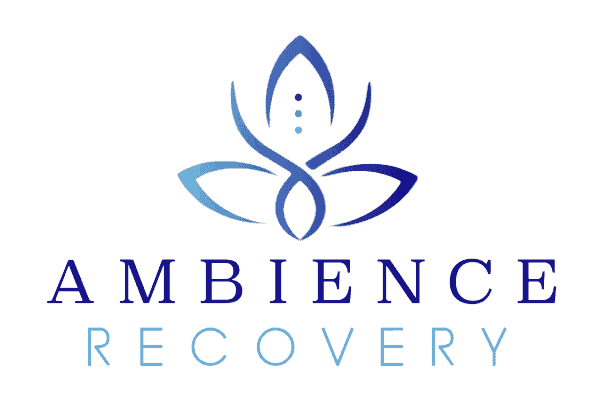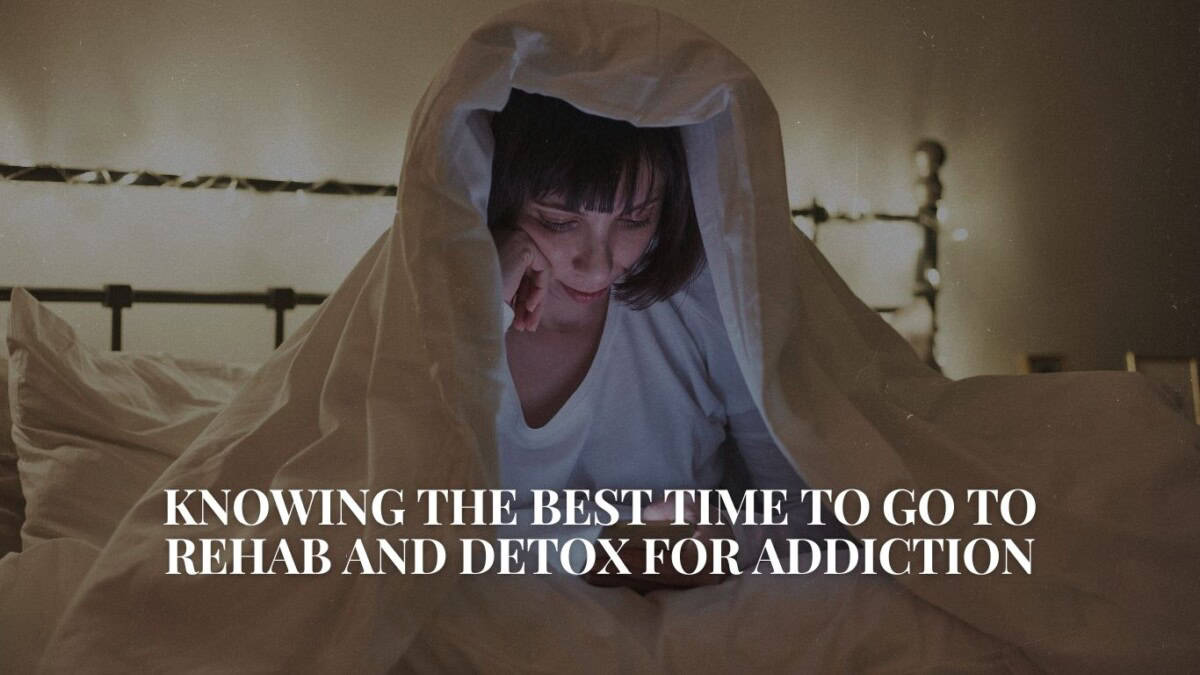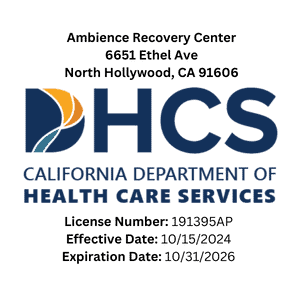In 2020, the Substance Abuse and Mental Health Services Administration found something alarming. Only 1.4% of the nearly 41 million Americans over 12 who needed addiction help actually got it12. This highlights how vital it is to know when to seek help for addiction. Delaying can lead to serious problems. Some may think they don’t need help or feel too ashamed to ask. But addiction won’t wait for anyone to decide2.
When withdrawal symptoms like nausea and headaches start messing up your day, it’s a sign. It might be time to think about getting into a detox program1. For those who seem successful on the outside but struggle within, waiting for something bad to happen could harm their recovery chances in a rehab program.1. It’s key to understand why getting help quickly matters so much.
Key Takeaways
- Early detection of substance use disorders can circumvent the progression to severe addiction and its devastating consequences.
- Being informed about the signs of addiction, such as an increased tolerance, withdrawal symptoms, and neglecting responsibilities, is crucial for seeking help timely.
- The hesitation to enter rehab due to denial, shame, or financial concerns can hinder the journey to recovery and should be addressed empathetically.
- The impact of addiction on personal and professional life can be quite extensive—recognizing this can prompt the search for effective detox programs and addiction recovery programs.
- Undergoing rehab before hitting “rock bottom” increases the likelihood of successful addiction recovery and restores quality of life.
Is My Addiction Bad Enough for Rehab?
Knowing when to get help for a substance use issue starts with seeing the major signs of substance use disorders. People often think their problem isn’t that bad because they compare it to worse cases. This leads to waiting too long to get the help they need3.
Recognizing the Signs of Substance Use Disorders
Addiction shows itself in many bad ways. It can ruin personal relationships and make someone’s work suffer. It can also cause physical dependence and changes in behavior. Doctors see these problems as a range from not too bad to very serious, often recommending an inpatient rehab for those with severe issues.3. When withdrawal symptoms start, it means the body needs the substance. This is a sign that it’s time for effective rehab timing.
Reflecting on Personal Substance Use and its Impact
Substance use has a huge impact on a person’s life. It affects health, friendships, and how well someone does their job. In the US, over 93,000 people died from overdoses in 2020 alone4. It’s important to think about how substance use is affecting you. This helps you know when it’s time to start rehab with optimal rehabilitation period.
Mistaking the Severity of Your Condition
It’s risky to not see how serious an addiction is. What starts as a habit can turn into a need4. Thinking you’re not as bad as others can delay getting help3. Realizing you need help early can stop the addiction from getting worse. It can also prevent serious health problems like heart or liver disease and mental issues, depending on what you’re using4.
Addiction gets worse over time and needs to be treated soon. Waiting until things are at their worst can make rehab less helpful. It can cause damage that can’t be fixed43. Knowing when to get help and starting treatment early are key. They are crucial for getting better and living a healthier life.
Understanding the Stages of Addiction
Everyone’s journey through addiction is unique. Still, knowing the common stages can greatly help in addiction recovery programs. The Transtheoretical Model describes these stages as precontemplation, contemplation, preparation, action, and maintenance. This model aids those affected in their peak recovery window5.
In the pre-contemplation stage, individuals might deny the negative impacts of their actions on their lives and others5. Moving to the contemplation and preparation stages, a readiness for change emerges. People start small but important steps toward getting sober, like seeing counselors or changing their routines5. This is key for a successful, optimal rehab duration.
During the action stage, individuals work hard to change their habits and seek help to avoid slipping back5. This is when the effort from earlier stages pays off. In maintenance, the focus is keeping up sobriety. This includes regular exercise and a stable lifestyle, lasting from six months to five years, depending on the person5.
- Precontemplation: Indifference and denial towards their addictive behaviors.
- Contemplation: Acknowledgment of addiction and contemplation about change6.
- Preparation: Initial steps towards recovery and consulting professionals.
- Action: Active participation in addiction recovery programs and lifestyle overhaul.
- Maintenance: Sustained effort to prevent relapse and maintain new habits.
Understanding these stages helps both individuals and their support circles prepare for each phase’s challenges. Addiction isn’t just poor choices; it’s a long-term problem needing a structured treatment plan, like how you’d manage chronic illnesses7.
In the beginning, substance abuse can impair thinking and problem-solving skills. This shows why it’s important to have therapy that inspires hope and helps people rejoin society6. These early moments are crucial for effective treatment and lasting recovery.
To wrap it up, successfully moving through addiction phases with strong addiction recovery programs and knowing the peak recovery window can dramatically improve recovery chances. It’s the difference between falling back and a life of ongoing recovery56.
Best time for rehab: Timing Your Treatment for Optimal Success
Figuring out the best practices for rehab timing means seeing the value in matching treatment with when you’re ready. It’s crucial to consider both your physical and emotional state. This ensures you get the most out of your rehab experience.
Considering Your Physical and Emotional Readiness
Joining rehab when you’re stable, both emotionally and physically, helps you immerse in the process. The National Institute on Drug Abuse (NIDA) recommends at least 90 days in treatment. They believe shorter stays often don’t lead to lasting change89. Spending this time in rehab builds skills to avoid relapse and maintain sobriety. Importantly, studies show people staying longer than 90 days have a much lower chance of relapsing, with rates dropping to 17%8.
The Role of External Factors in Choosing a Rehab Timeline
When picking the ideal therapy timing, outside factors play a big role. Things like having support at home or how severe the addiction is matter. With substances like alcohol or opioids, withdrawal can be tough, affecting how long detox takes10. Additionally, options for staying in rehab up to 90 days offer a stable place to work on addiction issues deeply9.
Timing considerations for rehab also include what comes after the treatment itself. Continuing support after rehab is vital for a good recovery journey. Research backs up the idea that longer stays in treatment lead to better outcomes. Staying over 90 days greatly lowers the chance of going back to old habits and supports a lasting recovery89.
To plan timing considerations for rehab well, look at your readiness, support systems, and health needs. Whether deciding on the detox phase or extended care after rehab, these factors are key. They help shape a recovery plan that follows the best timing practices for rehab.
Rehabilitation Timing Strategies: Factors Influencing Your Decision
Choosing the right time for rehab is key to better recovery. It’s vital to know how addiction affects you and the costs involved. This knowledge helps pick the best moment to start recovery programs.
Assessing the Impact of Addiction on Your Life and Career
Addiction harms your health and your job. Waiting too long to get help can worsen your work and hurt your career. Knowing when to seek help is important for a successful rehab experience.
Substance abuse can lower work productivity and cause more days off. Spotting these signs early is crucial. It would allow you to get treatment in time, protecting your job and personal life11.
The Importance of Early Intervention in Addiction Recovery
Starting recovery early is critical. Waiting too long makes things worse for your health and role in society. Quick actions lead to better health and fewer chances of falling back into addiction12.
Getting help early in a treatment program uses the brain’s healing powers for quicker, better recovery. This strategy helps beat addiction. Plus, it reduces harmful effects on mental and physical well-being11.
In summary, using early rehab timing strategies is essential. It means understanding its vast benefits. Taking action against addiction early improves life quality. It helps people be their best in their families and communities12.
How Waiting for Rock Bottom Can Diminish Recovery Outcomes
Thinking you must be at your worst to get help for addiction is outdated and harmful. Data tells us that waiting until things are really bad can make rehab less effective and recovery harder13. Starting treatment at the right time is key for a lasting recovery.
Getting help early means better chances for staying sober and improving your life. Waiting can cause serious health problems, money issues, and harm relationships14.
Starting rehab early can greatly improve recovery chances. The longer you wait after realizing you need help, the harder recovery gets14. Offering treatment right away helps people begin and stick with their recovery plan14.
- Early intervention prevents the addiction from escalating.
- Immediate treatment access minimizes potential societal and personal losses.
- Rehabilitation timing strategies ensure high adaptability and tailored treatment approaches.
Believing you need to hit rock bottom first stops you from acting fast against addiction. It’s crucial to see how serious addiction is early on and act quickly. This boosts recovery chances and lessens negative effects on life13.
Conclusion
Making the choice to enter rehab and detox is very important. It’s about knowing you need help and finding the right time to get it. Research says that staying in drug treatment longer often leads to better results. It also shows that having a good team of doctors and therapists makes a big difference15.
For other health issues, starting rehab 2 to 4 weeks after a problem starts is best. This helps people recover more quickly and strongly16.
In addiction recovery, not all programs work the same for everyone. Studies tell us that starting treatment right away and having good care can lower drug use and less crime15.For young people who get hurt, starting rehab soon can make a big difference in how bad their symptoms are. This supports taking quick and clear actions16.
Detox is the first step in getting better, but it shouldn’t be the only step15. Choosing to start early and stick with a treatment plan can really help in beating addiction. So getting help fast, based on facts and others’ success stories, is not just advice. It’s a must-do for a better recovery path.
FAQ
When is the best time to go to rehab for addiction?
The best time to go to rehab for addiction is when you recognize that your substance use is negatively impacting your life. This includes physical health issues, deteriorating relationships, poor job performance, or legal troubles. The earlier you seek addiction treatment, the better your chances of successful recovery. However, it’s never too late to seek help. Acknowledging the need for rehab treatment is the first step towards a healthier life.
How do I know if I need a detox before starting rehab?
A detox is often necessary if you are physically dependent on substances like drugs or alcohol. Symptoms of physical dependence include experiencing withdrawal symptoms when not using the substance. Consulting with a healthcare professional can help determine if a detox program is required before starting a rehab program.
What are the signs that I need to go to a rehab center?
Signs that you need to go to a rehab center include an inability to stop using the substance despite wanting to quit, experiencing withdrawal symptoms, neglecting responsibilities, and engaging in risky behaviors. Persistent cravings and unsuccessful attempts to quit are also indicators that professional help is needed.
Is it necessary to go to inpatient rehab?
Whether inpatient rehab is necessary depends on the severity of your addiction and your individual needs. Inpatient care provides a structured environment with 24/7 support, which can be crucial for severe substance use disorders. For less severe cases, an intensive outpatient program or other forms of treatment may be sufficient.
How long should I stay in rehab?
The length of stay in rehab varies depending on individual needs and the type of addiction. Short-term rehab programs typically last 28 to 30 days, while long-term rehab can last
Q: How do I know if my addiction is severe enough for rehab?
A: To understand if your addiction is severe, look for signs like trouble in your personal or work life, physical need for the substance, and changes in how you act. Experts can help figure out how severe your addiction is, guiding you on if rehab is needed. It’s good to think it over yourself or talk to a pro at a treatment center to see if rehab is the right step.
Q: Why is early intervention important in addiction recovery?
A: Starting recovery early is key because it stops things from getting worse in your health, relationships, and job. It makes overcoming addiction easier and boosts the odds of doing well in rehab. Waiting too long can make addiction harder to beat.
Q: How do I consider my physical and emotional readiness for rehab?
A: Knowing if you’re physically ready means understanding how substance use has hurt your body and if you need medical help right away. Being emotionally ready means you’re set to dive into recovery and make big life changes. Being aware of yourself and getting advice from doctors can help you see if you’re ready for rehab.
Q: What role do external factors play in choosing a rehab timeline?
A: Things like having solid support, how bad your health issues are from substance use, and other big responsibilities can impact when you choose to go to rehab. Planning your treatment with these things in mind can help you focus better on getting better and use outside support to improve your rehab experience.
Q: Can waiting until hitting “rock bottom” affect my recovery from addiction?
A: Yes, waiting till everything falls apart to seek help can make recovery tougher. Putting off treatment can cause health, legal, and relationship problems that might not be fixable. Addiction gets worse over time, so getting help early really helps in making a successful recovery.
Q: How should I reflect on my personal substance use to understand its impact?
A: To think about your substance use, honestly look at how it’s changing your life. Check if it’s causing problems with friends or at work, or harming your health. Seeing the bad effects of drug use, without comparing to others, is key to understanding its real effect on you.
Q: Why is it a mistake to downplay the severity of my addiction?
A: Not seeing your addiction for how bad it is might stop you from getting help and make things worse. It’s key to look at your situation clearly and know that addiction will not get better by itself, no matter how well you might seem to be doing from the outside.
Q: How can I assess the impact of addiction on my life and career?
A: To see how addiction affects you, notice if you’re struggling at work, having trouble in relationships, or if your health and legal status are suffering. These signs show that your addiction is negatively impacting your life and that rehab might be needed.
Q: What factors should influence my decision on the timing for rehabilitation?
A: The right time for rehab depends on how far your addiction has gone, if you’re ready for a change, your support network, any urgent health risks, and if you can get better without waiting. Evaluating these areas can help decide the best time for rehab, making recovery more likely to last.
Source Links
- How To Know If You Need Help – https://www.addictioncenter.com/rehab-questions/is-my-addiction-bad-enough/
- 10 Signs It’s Time to Go to Rehab – Desert Cove Recovery – https://desertcoverecovery.com/blog/10-signs-time-to-go-to-rehab/
- Is My Addiction Bad Enough for Rehab? | Never Alone Recovery – https://neveralonerecovery.com/bad-enough-for-rehab-7630/
- Is My Addiction Bad Enough? – https://www.rehabspot.com/treatment/questions-about-rehab/is-my-addiction-bad-enough/
- What Are the Stages of Addiction Recovery? | Recovery at the Crossroads – https://www.racnj.com/the-five-stages-of-addiction-recovery/
- 5 Stages of Treatment – Substance Abuse Treatment: Group Therapy – https://www.ncbi.nlm.nih.gov/books/NBK64208/
- The Addiction Cycle: What Are The Stages of Addiction? – https://americanaddictioncenters.org/the-addiction-cycle
- What Is the Optimal Amount of Time to Spend in Rehab? | Summit Helps – https://summithelps.com/treatment/how-much-time/
- How Long Does Treatment Take? – https://www.addictioncenter.com/rehab-questions/how-long-does-treatment-take/
- How Long Is Alcohol Rehab & Detox? Alcohol Detox and Rehab Lengths – https://americanaddictioncenters.org/alcohol/rehab-treatment/how-long
- Time spent in rehabilitation and effect on measures of activity after stroke – https://www.ncbi.nlm.nih.gov/pmc/articles/PMC6464259/
- Rehabilitation: Essential along the Continuum of Care – Disease Control Priorities: Improving Health and Reducing Poverty – https://www.ncbi.nlm.nih.gov/books/NBK525298/
- “Hitting Rock Bottom” in Addiction Recovery – https://www.clearstepsrecovery.com/addiction-recovery-blog/hitting-rock-bottom-in-addiction-recovery
- Waiting Time as a Barrier to Treatment Entry: Perceptions of Substance Users – https://www.ncbi.nlm.nih.gov/pmc/articles/PMC2396562/
- The Effectiveness of Treatment – Treating Drug Problems – https://www.ncbi.nlm.nih.gov/books/NBK235506/
- When is it time to start rehab? exploring the optimal timing to initiate active rehabilitation for concussion management in children and adolescents – https://bjsm.bmj.com/content/51/11/A87.2
Katie is a Licensed Clinical Social Worker who has worked as a primary therapist, supervisor, and now clinical director for SUD/MH treatment centers for the past 12 years. Katie is trained in Brainspotting, EMDR, Internal Family Systems and Dialectical Behavior Therapy and is passionate about treating substance use disorders, trauma and grief.






